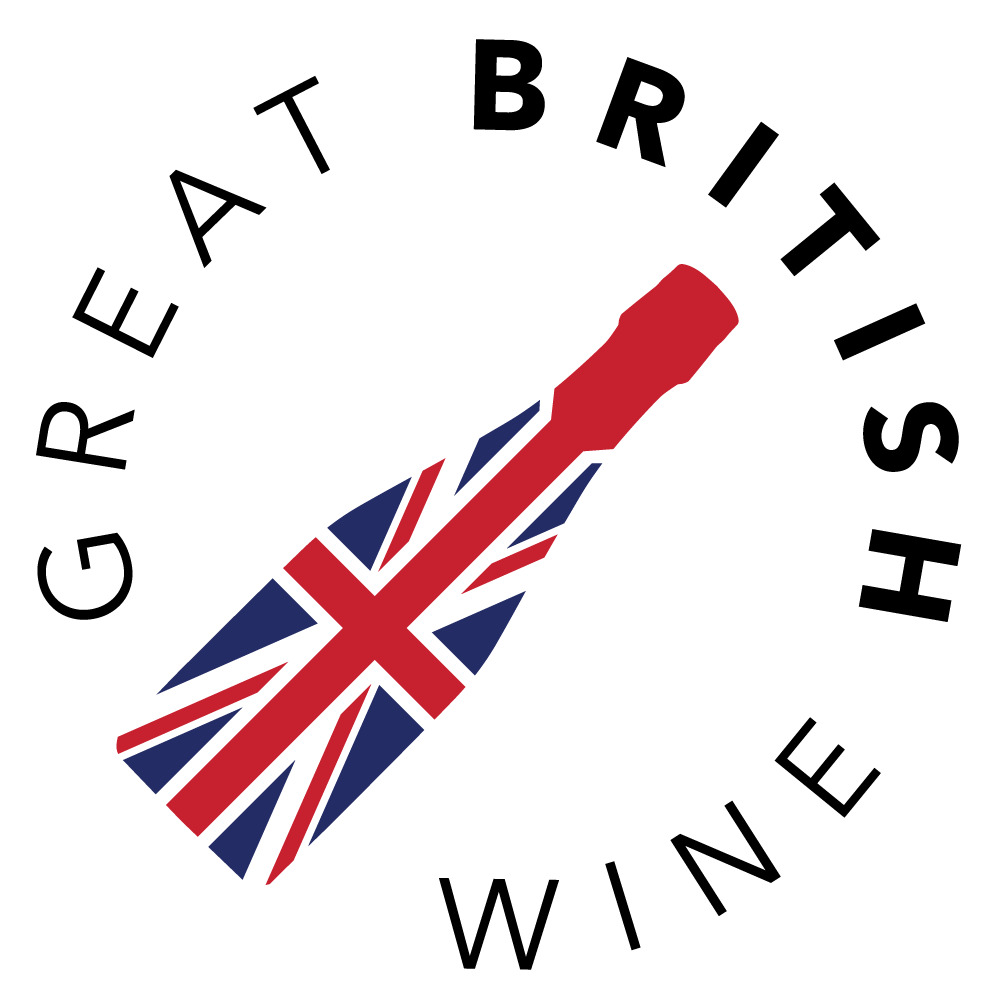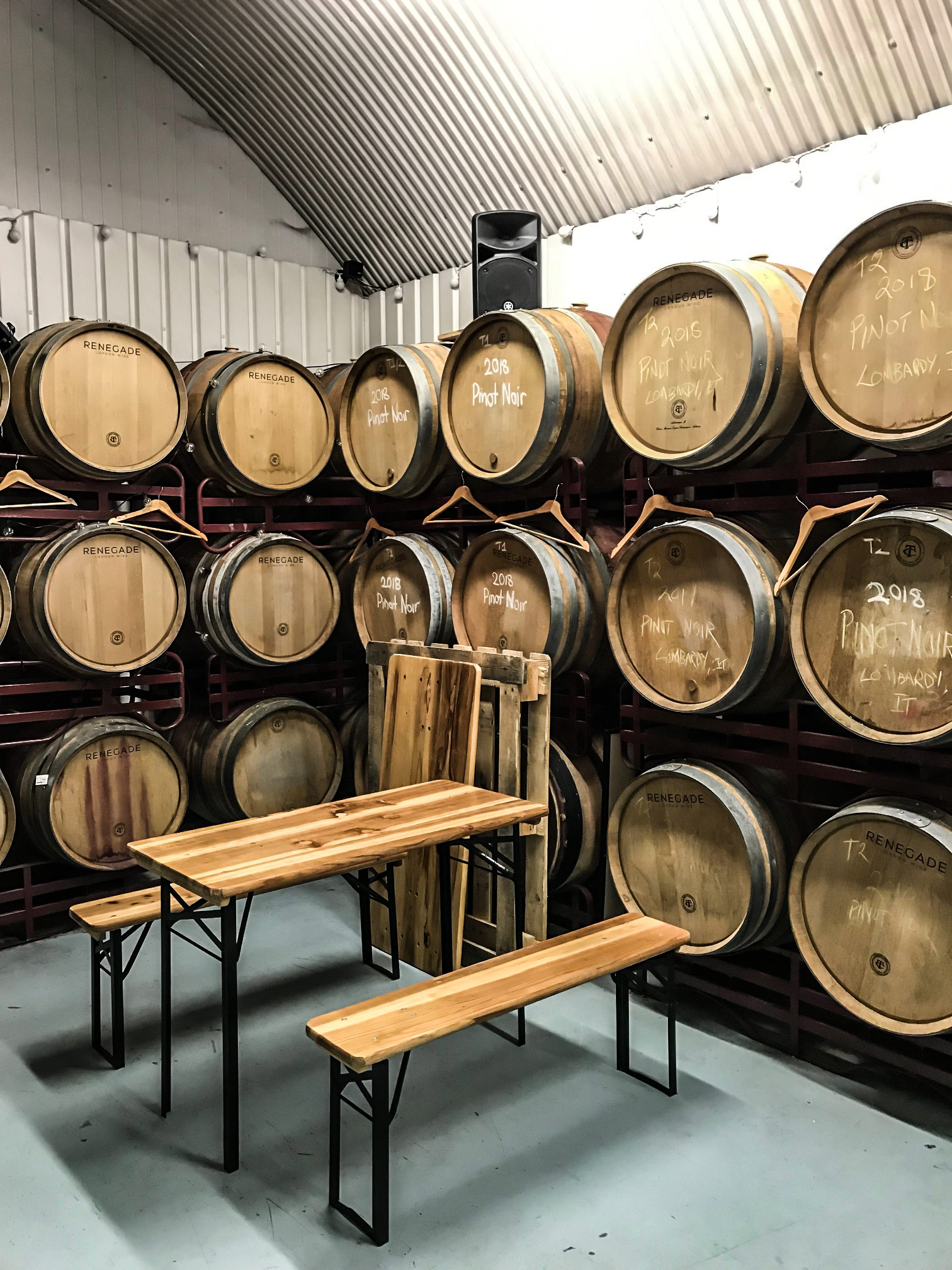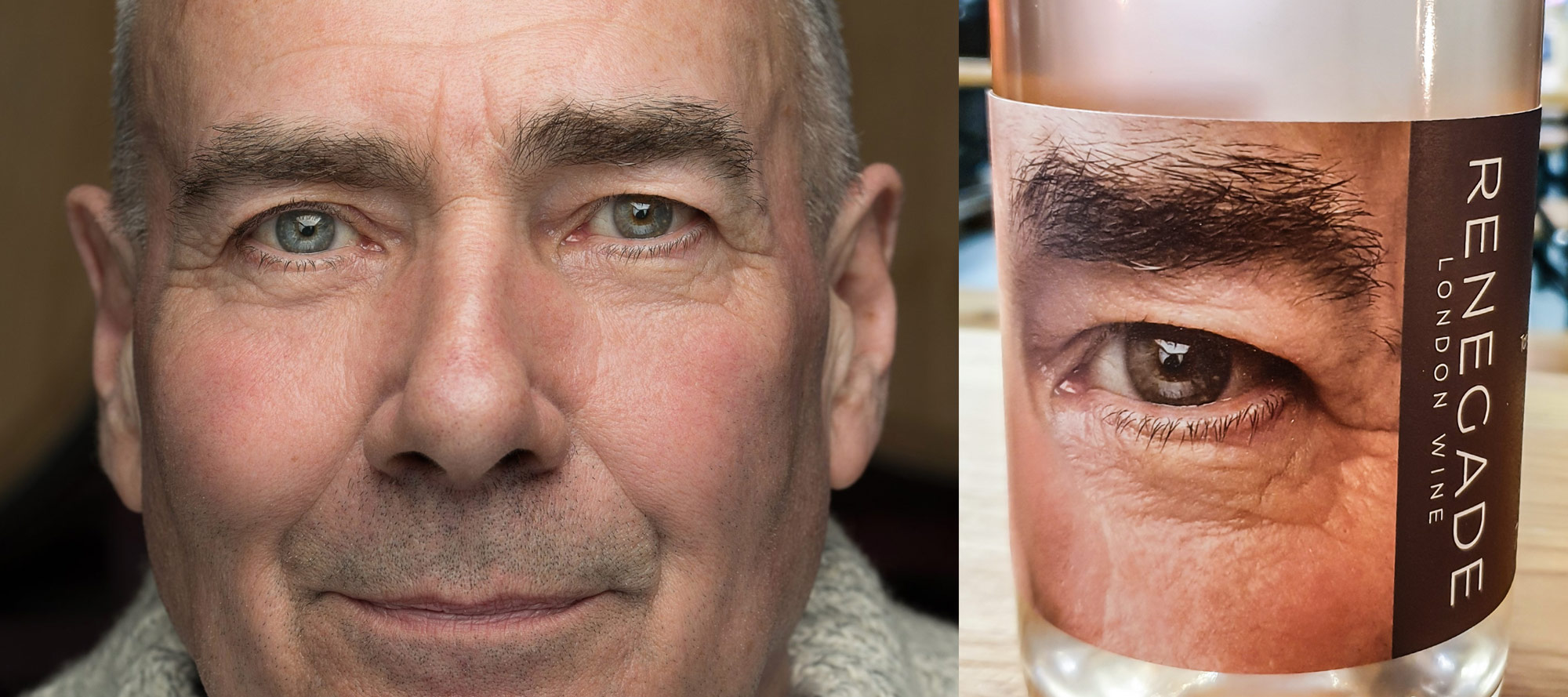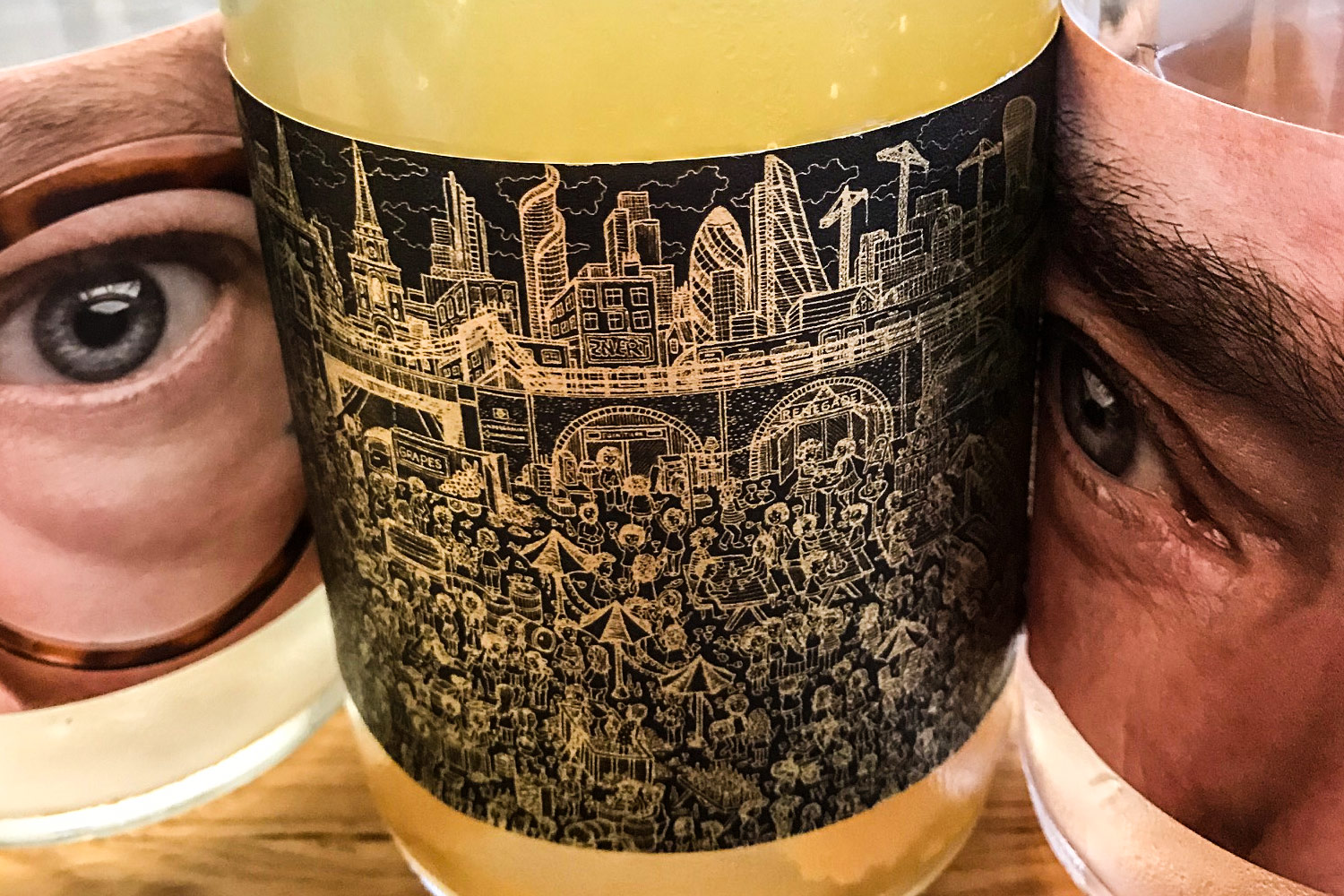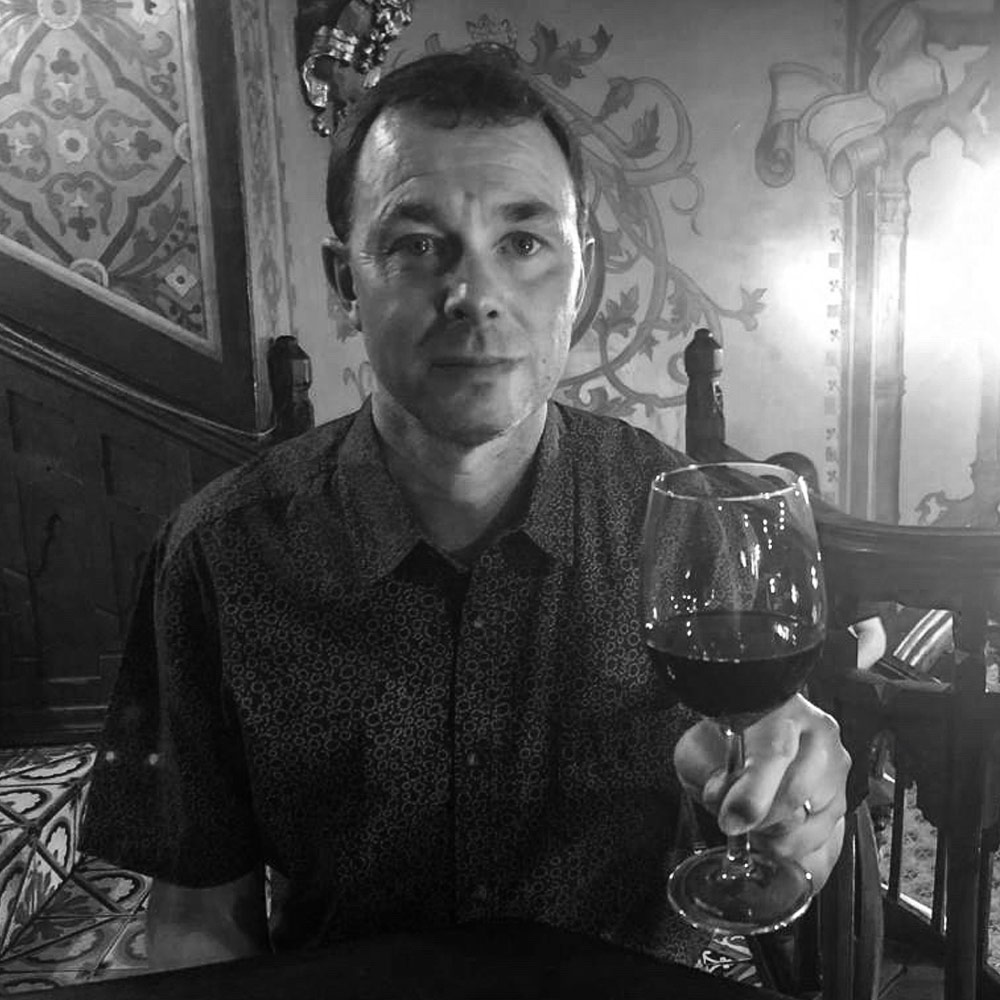Down an unpromising alley off Bethnal Green Road lies a series of handsome railway arches. Here one finds various businesses, including an acupuncture clinic, a Taekwondo school, and a boxing gym. Overground trains rumble overhead in between Hoxton and Whitechapel and, on Bethnal Green Road, a busy clothes market does brisk business. Renegade Winery is situated in the heart of this community underneath one of those arches, a utilitarian setting, but thoroughly in keeping with the urban winery schtick. There are three other London wineries, two of which are to be found under railway arches (London Cru and Blackbook), the other at the Battersea Power Station site (Vagabond).
Warwick Smith, owner of Renegade, used to work in the Asset Management business. He was based principally in London and elsewhere in Europe, plus South East Asia. His wine training consisted of working on the job with winemakers that he himself had recruited, his current winemaker being Andrea Bontempo who has worked, amongst others, with the Simpsons in the Languedoc. Warwick is very hands-on in the winemaking process and has a full part to play in the selection of the grapes and in the winery. He has now produced three vintages from grapes grown from south of Milan, the Pfalz, Blaye (on the right bank of the Bordeaux) and England.
Warwick told me it was the American urban wineries (for instance, in San Francisco and Oregon) that influenced his decision to set up his business, even though London Cru was the first English urban winery to go on stream in 2013. He couldn’t believe that there weren’t more in the capital given Londoners’ reputation for being neophiles and their embracing of the craft gin and beer movement. Warwick cited England’s proximity to the Loire and the Pfalz, compared to the distance that grapes are transported in Australia, as one of the reasons for setting up a winery importing grapes from our near neighbours.
Sales have been healthy of late, with Renegade’s wines on offer in a number of London restaurants, eateries in Birmingham, Liverpool, Brighton and Margate, and upmarket department store, Harvey Nichols. Warwick attributes this to people getting over their scepticism about wine made in London. Also their distinctive products, borne out of innovative winemaking techniques (about which more below) and funky labels, must make a contribution. 15% of sales are made through the winery bar but online sales make up only a tiny fraction of the business’s profit.
In addition to fruit imported from France, Germany and Italy, Renegade use grapes from a number of English wine regions. They source Bacchus, Pinot Noir and Seyval Blanc from Herefordshire, Chardonnay from Essex, Pinot Meunier from Hampshire and Pinots Noir and Meunier from Suffolk. The proportion of English fruit used in the winery has gone up from 15% in their first vintage (2016) to 50% in 2018. They tend to concentrate on varietal wines and don’t generally mix fruit from different vineyards or wine regions but in 2017, as an experiment, they did mix English grapes with continental varieties, achieving the best of both worlds with a combination of English acidity and continental ripeness. I asked Warwick whether he’d consider doing this again. He said he would, as long as the venture wasn’t considered gimmicky in any way.
Innovation is Renegade’s watchword. Using hops in the making of a wine is a new one on me but this is exactly what they have done in order to spice up a usually bland grape, Seyval Blanc, with their ‘Bethnal Bubbles’. Other unusual techniques employed in the winery include using a qvevri (a concrete amphora-shaped vessel) for fermentation of their Herefordshire Bacchus, utilising chicken wire for whole bunch pressing grapes, experimenting with different oaks and exploiting wild yeasts.
Renegade currently have three English wines on sale: I started our tasting with ‘Jock’, a 2018 rosé. The wine gets its title from a Borough Market fruiterer who won a competition to have the wine named after him. It’s Jock’s eyes on the bottle too. Made from 60% Pinot Noir and 40% Pinot Meunier, Warwick and Andrea had two aims when making this wine. One was to get an attractive pale colour because they feel people consider the hue of the wine when buying rosé. Secondly, they wanted a crisp, tangy wine which showcased the acidity of English fruit. Warwick explained that they don’t stop fermentation prematurely in their wines meaning that most of their wines are dry. This wine was no exception but the purity and ripeness of the strawberry fruit impressed me as did a lovely hint of creaminess.
Jock 2018, photo credit to @renegadelondonwine
The next English wine was ‘Jamie’, a naturally fizzy Bacchus named after another competition winner. This wine blew me away with its aromatics. Pear and elderflower erupted from the glass and, on the palate, pear drops and white peach predominated.
Finally, it was the turn of ‘Bethnal Bubbles’ which is made with a lot of hops, zero chaptalization, no de-acidification, no filtration and no fining, with secondary fermentation taking place in the bottle. Is it a beer? Is it a wine? Warwick and Andrea have cleverly played with this dichotomy but I came down on the side I think Warwick wanted me to, and concluded that it was wine (an "aromatised wine-based drink", in his words). There were hoppy aromas of resin, grapefruit and herbs, and flavours of orange, pear and citrus featured on the palate.
Warwick gave me an exclusive preview tasting of two more English wines, a 2018 Chardonnay and the 2018 Qvevri Bacchus, which he gingerly retrieved from the top of the vessel. The (oaked) Chardonnay is made in the same fashion as their Italian Chardonnay (we tasted the 2017) which Warwick described as being "Burgundy on steroids". The English Chardonnay was more like Burgundy on Paracetamol, which is not to denigrate it, but to illustrate the sharper and subtler flavour profile of the Essex fruit. The Bacchus from the qvevri was, not surprisingly, cloudy and reminded me of an orange wine in its funkiness even though the colour was more yellow.
Each wine I tasted had a distinctiveness and sense of ‘other’ the likes of which I’d never tasted before. In fact, I would go so far as to describe Renegade’s wines as avant-garde. This is surely down to the combination of the relentless quest for the new and inventive on the one hand, and the belief in things taking their course on the other. An example of the latter is how Warwick tolerates the relentless roaring of the trains over the roof of the winery; he says it creates a natural battonage for the wines. Long may the Overground continue to stir the lees of Renegade’s fabulous wines.
- n/a
- Yes

